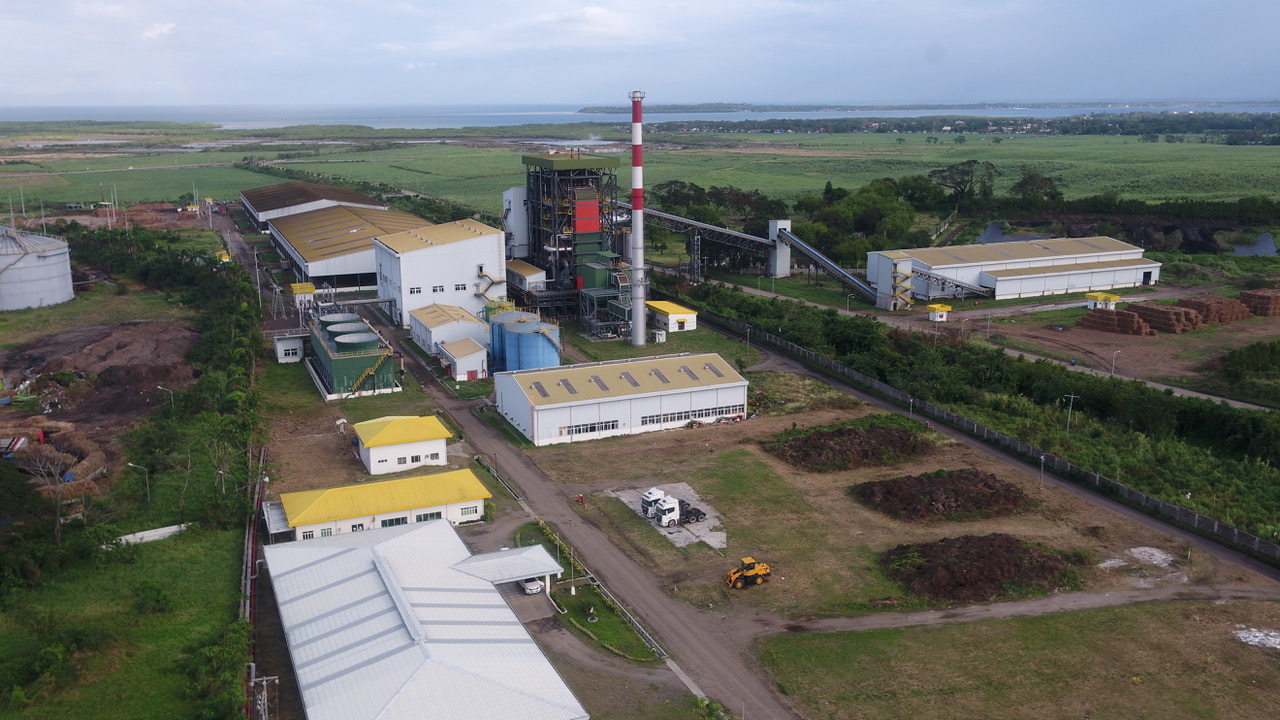Negros Occidental emerging ‘hope spot’ for green energy

The San Carlos BioPower is a biomass-fired power station in San Carlos, Negros Occidental. It is among the biggest biomass power stations in the Philippines and has a generating capacity of 20 megawatts. It has a generating capacity of 20 megawatts for 212,000 people in the region’s urban centres and rural areas on the island of Negros. (CONTRIBUTED PHOTO)
BACOLOD CITY—Negros Occidental province is not just the country’s “sugar bowl” but has become a center for renewable energy (RE) in the Philippines, producing electricity from sustainable sources more than the local demand.
Among its renewable energy sources are solar, hydro, geothermal and biomass which relies on cane trash.
Provincial government records showed that as of June 2022, Negros Occidental had a locally installed renewable energy capacity of 510.10 megawatts (MW) and dependable capacity of 379.9 MW produced by 16 power plants.
At present, the province has at least 49.27 MW of excess dependable renewable energy capacity in addition to the 25.9 MW of dependable oil-based (bunker/diesel fuel) capacity at a power plant at Barangay Calumangan, Bago City, resulting in a total excess dependable energy capacity of 75.17 MW at maximum peak load. There are also additional solar and hydro power projects in the pipeline.
In its mills, sugar and renewable energy go hand in hand as bagasse, the dry pulpy fibrous material that remains after shredding and crushing sugarcane, is used to produce power. This sugarcane waste contains cellulosic fibers with almost 50 percent moisture content, making it a good source of fuel due to its high heating value.
Negros Occidental has at least 13 of 29 mills operating in the country, giving the province a huge potential as a major supplier of bagasse to meet fuel demands.
Former Gov. Rafael Coscolluela, now the province’s consultant on energy and environment, said non-mill based biomass plants use cane trash from the fields to create power.
“This addresses the age-old practice of burning cane trash in the fields which is in violation of the Clean Air Act (Republic Act No. 8749),” he said.
Attempts had been made to put up coal-fired power plants in Negros Occidental but these were met with strong opposition. Environmental advocates in Negros held protest actions which halted the planned construction of coal-powered plants in Pulupandan town and San Carlos City.
In 2019, the late Negros Occidental Gov. Alfredo Marañon Jr. issued an executive order declaring the entire province of Negros Occidental as coal-free.
Incumbent Gov. Eugenio Jose Lacson signed Executive Order No. 23-16, Series of 2023, creating a provincial Just Energy Transition (JET) council which was tasked to coordinate the preparation and implementation of the transition to renewable energy program.
Amid growing concerns about unreliable power and high electricity rates in the province, Lacson said a Provincial Power Sector Study Group was commissioned to conduct a Negros Occidental Power Sector Assessment Study (Nopsas).
The Nopsas report spelled out the need for a just transition to “reliable, renewable, available, accessible, affordable and sustainable energy” in Negros Occidental by 2030.
The Provincial Investment and Incentives Code of 2014 states that the Negros Occidental government, in line with its goal of becoming the organic food capital of the Philippines, will pursue the development of a “diversified green economy” by creating an environment that would encourage local and foreign business entities to invest capital that will push for sustainable and inclusive socioeconomic development for the long-term benefit of the people of the province.
Right direction
According to Joshua Villalobos, convener of the Negrosanon Initiatives for Climate and Environment, Negros Island has long been a center of sustainable energy sources to the point that climate and energy think tanks have branded it as “hope spot” for renewable energy.
“But the biggest challenge that stands before us now is how do we ensure that the installed RE capacity in the province is enjoyed by Negrosanons and that should reflect in the price, quality and cleanliness of the energy we are using,” he said.
Villalobos said RE technologies are rolled out in an efficient, timely, and just manner.
“I believe that our province is in the right direction. Since the policy of former Gov. Alfredo Marañon on the ban on coal and focusing on developing RE, Governor Bong’s (Lacson) continued effort on clean and sustainable energy. As a youth, I hope they will stay true to their commitments and respond accordingly to the call of the times considering the worsening climate change caused by emissions from the energy sector and the looming energy crisis in the country,” he said.
San Carlos Bishop Gerardo Alminaza, a strong advocate for environment protection, stressed the importance of Negros becoming a “green province.”
“For our own survival, we are already in a climate emergency. No matter how good our development projects are, we won’t realize them if we don’t have the conducive climate to implement them,” he said in a statement.
“We owe it not just to our ancestors but to the next generations to leave a legacy of a livable planet. Negros is blessed with rich and abundant natural resources. We are accountable to God and to each other,” Alminaza said.
RELATED STORIES
Renewable energy: Cebu companies go green
PH longest bridge now powered by P60-M hybrid solar farm
AboitizPower spreads positive energy, one community at a time
Disclaimer: The comments uploaded on this site do not necessarily represent or reflect the views of management and owner of Cebudailynews. We reserve the right to exclude comments that we deem to be inconsistent with our editorial standards.
